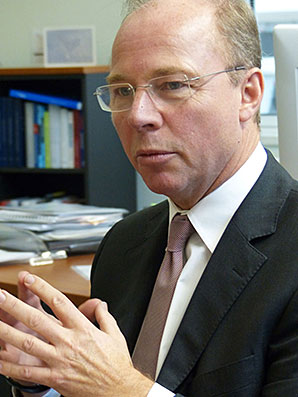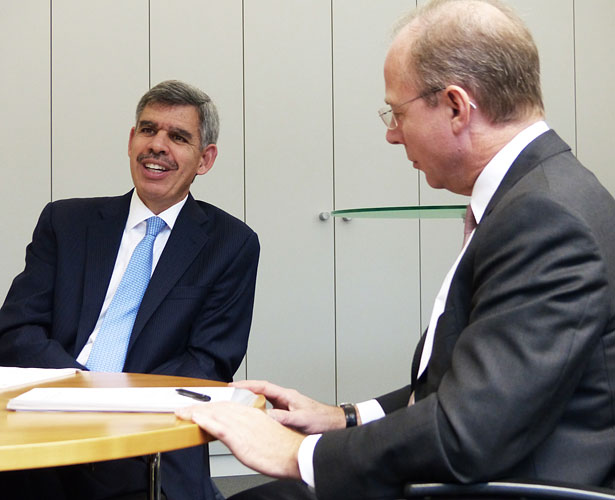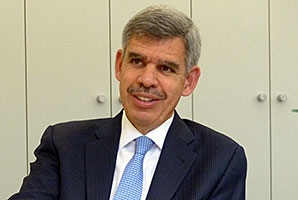Rich and poor: Do societies on different continents show differences regarding inequality? Can we take a closer look at Europe and the United States?
Heise: Yes, there are differences between societies and no single solutions. You can’t just tax the rich and give to the poor. In most of Europe we currently have an immense unemployment issue. Everything that can be done needs to be done to face it. The best policy to prevent inequality, to prevent poverty, is to offer a good education. People that can improve their qualifications, their proficiency have a better chance of getting a well-paid job. I think that is something we need to do in the US and in Europe. In Germany and other European countries we will also need to look at the tax rates of people with low incomes. The marginal tax rates here are fairly high, so if people step up the ladder a little bit they get a lot of their income taxed away or taken away by social security.
El-Erian: Innovation rewards people and society. What is notable is that we increasingly live in a world of “winner takes all” innovations. Take the notion of the ‘killer app’ for example. If you come up with an innovation that serves millions around the world, the rewards are substantial. They create millionaires and billionaires. And it’s a process that you don’t want to interfere with too much as it involves change that can improve the welfare of many people. So a bit of inequality is good in a market system because it encourages innovation and provides incentives to excel and work hard. The problem is with too much inequality. And today it is a problem that is compounded by incomplete policy responses to the awful aftermath of the global and European crises.
These days, the only policy-makers that are really responding in a consistent fashion are central banks. But they only have partial tools for the challenges at hand. And some of their responses aggravate inequality, not because this is an objective but because it is part of the unintended consequences of the journey in their quest for broader economic improvement. You see this in the United States. Wall Street has gone from record to record, yet Main Street, as we call it, is yet to harvest any significant benefits.
The worst thing is when you end up not just with income and wealth inequality, but when you end up with what I call the trifecta: income, wealth and opportunity inequalities. Because the minute you combine inequality and opportunities, you start worrying about a lost generation. High youth joblessness is an example. When you are without a job at a young age for a long time, you risk going from unemployED to unemployABLE.
Heise: Monetary policy definitely is exacerbating inequality. Not only in the US, where assets are booming, but also in Germany. A total of 40 percent of German financial wealth is allocated in bank deposits and saving accounts. They are not yielding returns anymore. The wealthier parts of society hold securities and insurance accounts, the poor lose with their cash savings. All in all, interest income in Germany is about ten billion euros lower per year than it was before the crisis.
Or do we need to take a closer look at Asia?
El-Erian: The hope is that China will succeed in navigating its tricky middle income transition. Recently, only five countries have been successful in this. And they were small countries, and none with the internal complexity and systemic importance of China. In India, poverty is still a problem. But, all in all, in the eastern parts of Asia, inequality is still something governments can deal with, and they are doing so and making progress.
If you go to the western parts of Asia, however, this is where inequality feeds a lot of radicalism and fundamentalism. There, inequality has contributed to the growth of non-state actors that are very disruptive. A lot of this has to do with the perception that the system only serves the privileged few. So you see the situation is different all over Asian countries, thus there is no one size fits all approach.
Heise: The leadership in China is looking to steer this transformation and some of the plans I think are quite sensible: to build a social security system which especially addresses the lower income segment of the population and relieves many households in China from providing for themselves. Improving the social security systems especially in the health area would be a major benefit for more equality but also for the transition of the economy towards a more consumption-led growth model. Liberalizing the financial market and freeing interest rates is a way to improve the situation also for households with smaller incomes – the small savers.


